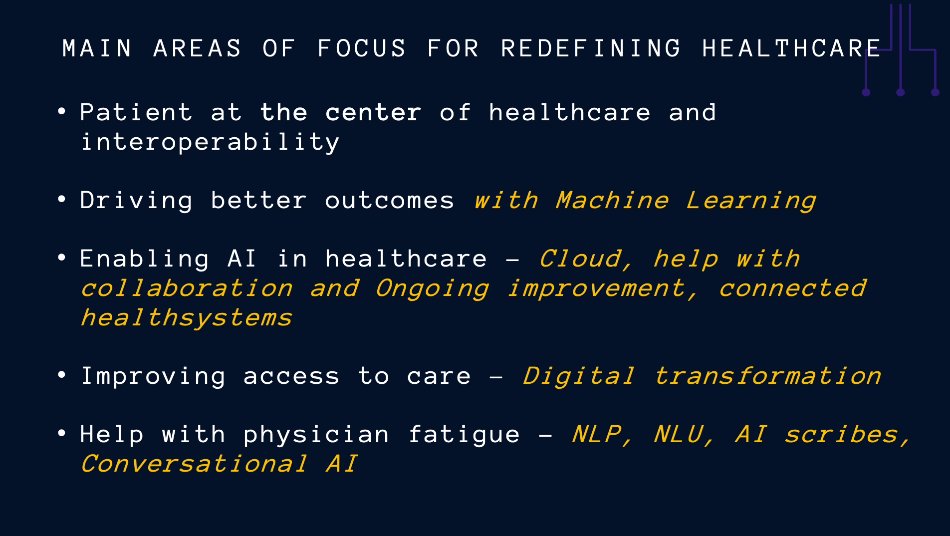
More and more, artificial intelligence (AI) technologies are being leveraged to help gastroenterologists in creative ways with their daily practice, as well as with improving patient care and outcomes, according to Sravanthi Parasa, MD, of Swedish Medical Center.
“We are seeing an explosion of AI algorithms in gastroenterology,” said Dr. Parasa, who presented data at DDW® 2021 on some of the latest studies on AI in gastroenterology. “Physicians need to know that it’s there to help, that in some cases it is approved by FDA for physicians to actually use, and that it improves the outcomes of patients.”
Dr. Parasa described several ways in which current and forthcoming applications of AI are (or soon will be) available to help busy physicians with administrative or non-patient clinical activities — such as dictation or searching the published medical literature — as well as more patient-based activities, such as diagnosis and predicting prognosis. Examples of types of AI technology she discussed include:
- Computer vision: This form of AI is similar to facial recognition software and is being used to reduce human subjectivity that normally occurs with reading radiology images. For instance, computer vision AI algorithms are designed to better detect pre-cancerous lesions, cancers and polyps. One type of computer vision tool — the Medtronic GI Genius — was approved by the U.S. Food and Drug Administration this year as the first commercially available computer-aided detection system using AI to identify colorectal polyps in the U.S.
- Conversational AI algorithms: Certain AI applications are being used to analyze patient–provider conversations to help populate physician notes templates and develop a more standardized note. The goal is to help make documentation more accurate, streamlined and efficient, thereby reducing some of the burden on clinicians.
- Machine learning applications using electronic health records: This type of AI tool is being used to help clinicians quickly sort through vast amounts of data — such as physician notes and patient demographic and clinical data in the electronic medical record — to improve risk stratification for things like disease progression.
- Literature searches: AI-infused literature search tools have been created with the goal of helping users sift through the latest publications and quickly determine outcomes from the randomized controlled trials. Dr. Parasa likens it to conducting an automated meta-analysis that, eventually, will hopefully provide physicians with trial findings at the point of care, enabling them to use trial results to make real-time decisions about treatment selection.

“There’s a lot of enthusiasm about AI and, in terms of understanding its limitations, one of the biggest so far is lack of access to education,” she said. “I think in any new field, there needs to be some education involved, and clearly we are seeing a lot of young physicians who are interested in learning how this can affect their practice and improve their patients’ lives.”
Dr. Parasa’s oral presentation of “Future applications of AI in GI” took place on Friday, May 21, at 3:30 p.m. EDT, as part of the ASGE session “AI and Endoscopy: Current State of Affairs and Future.”


